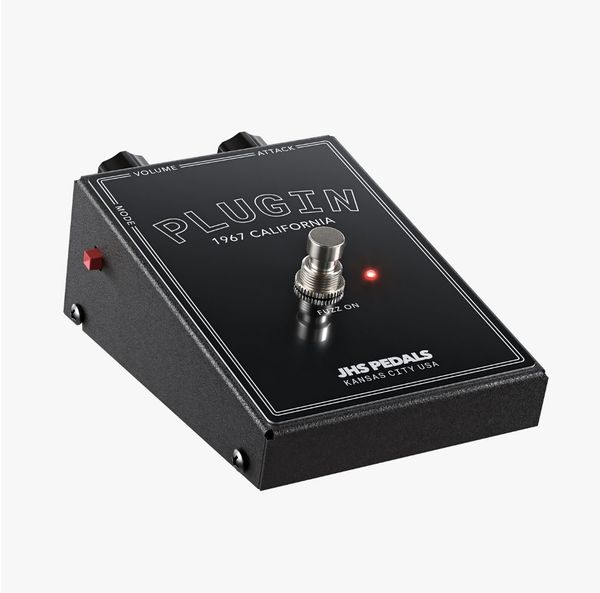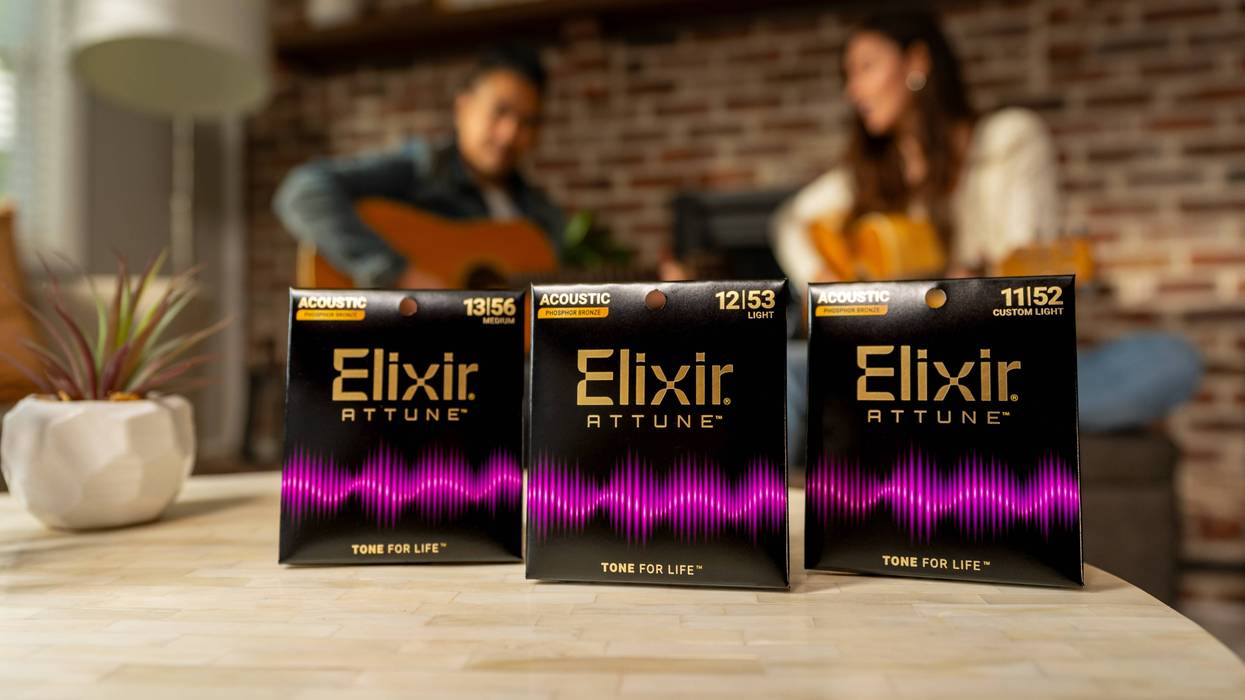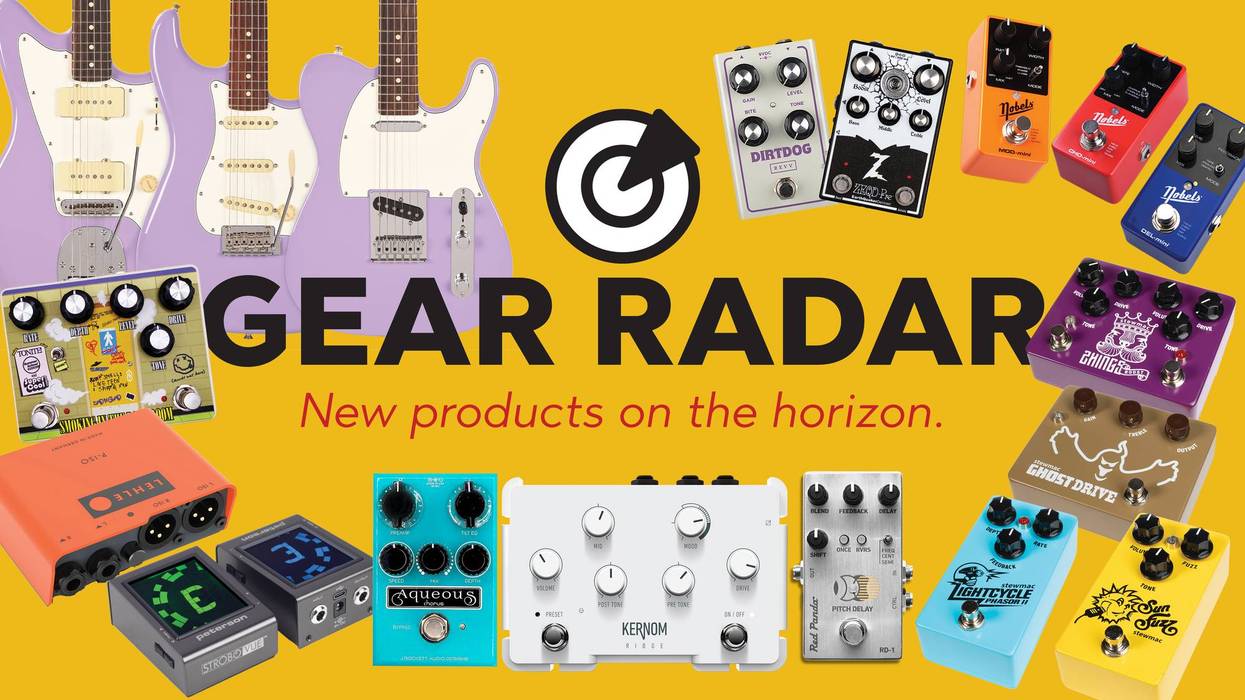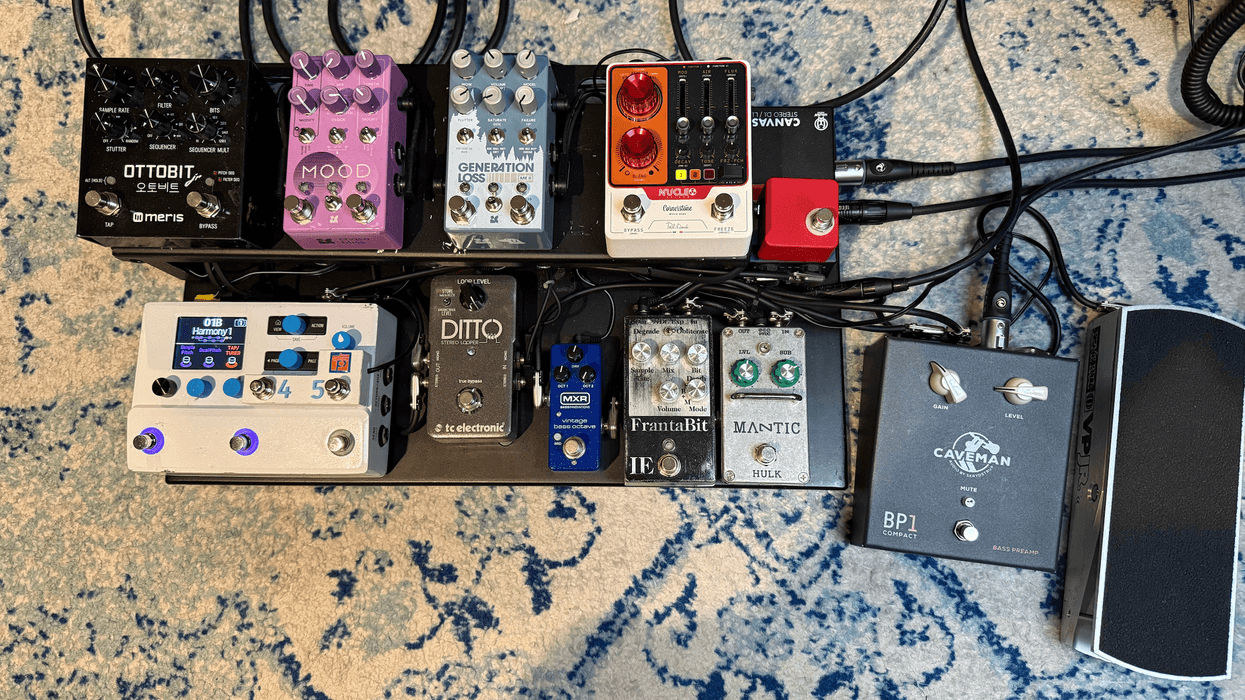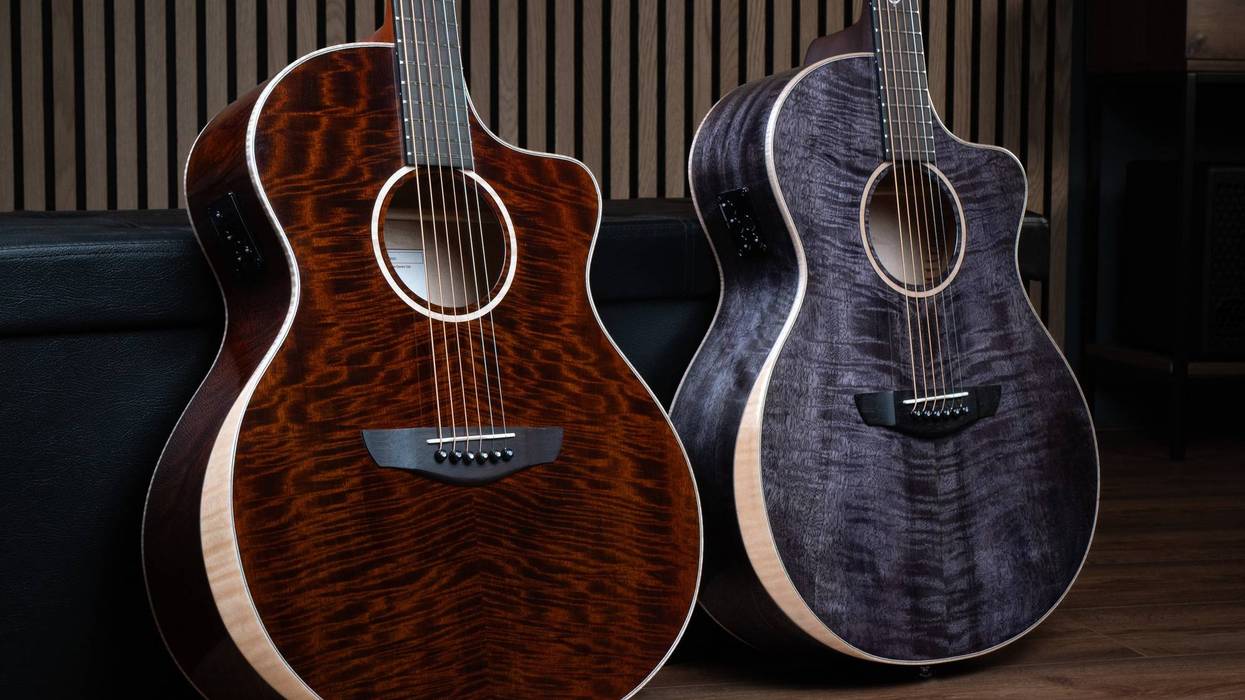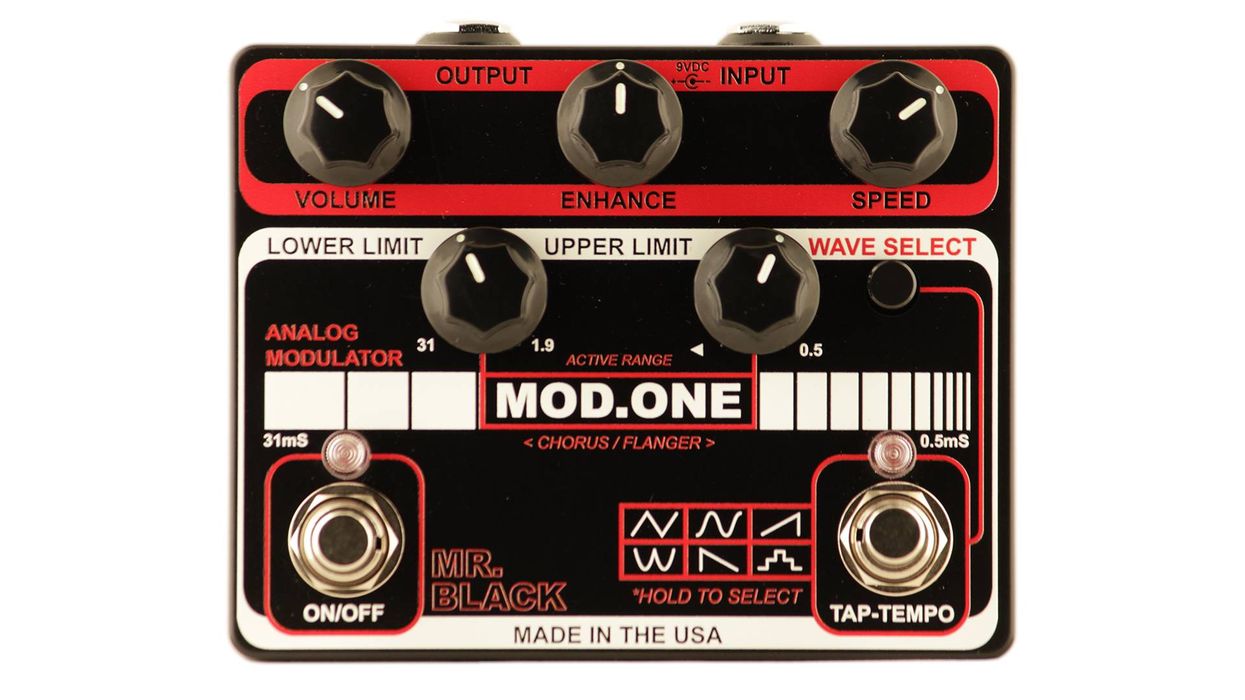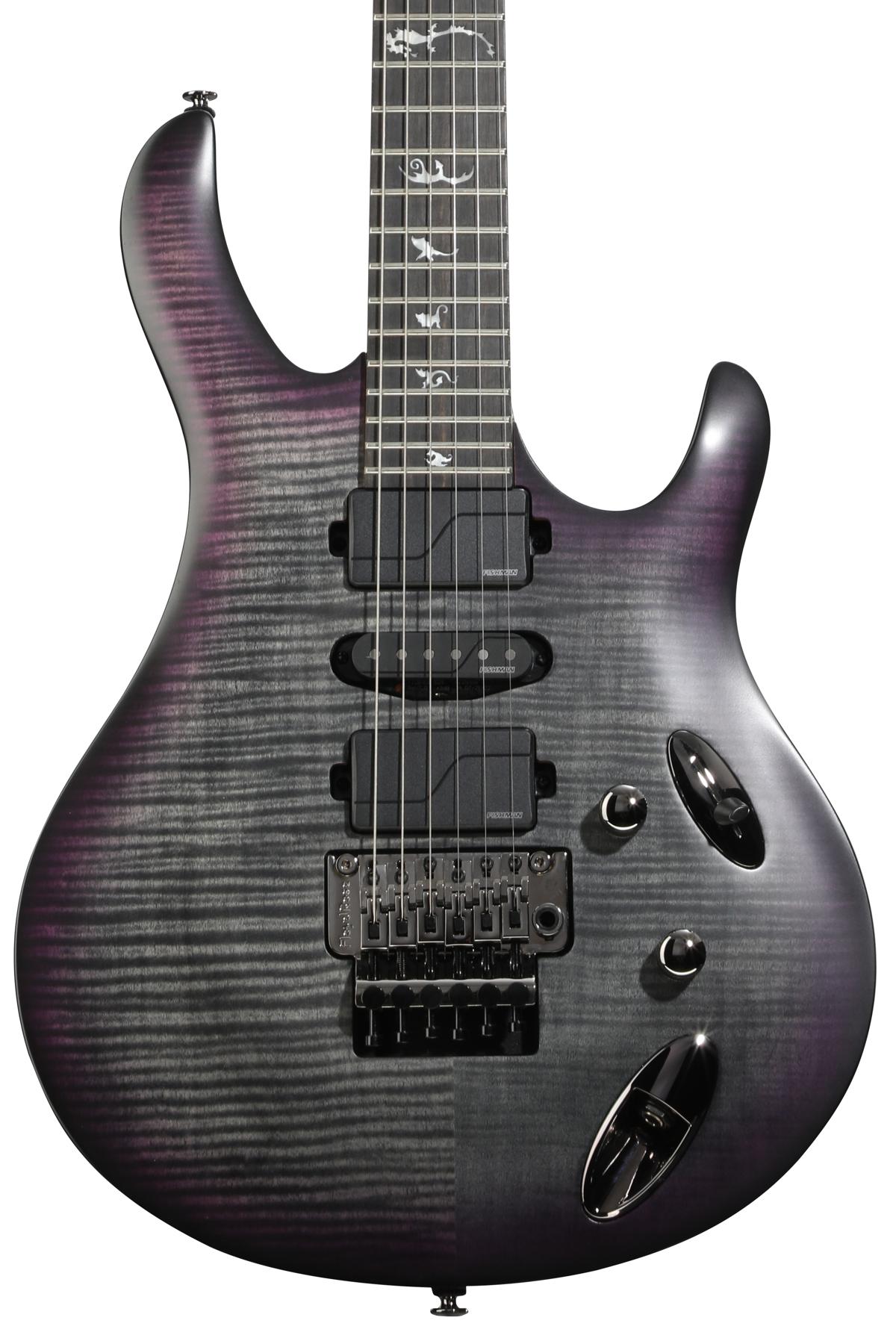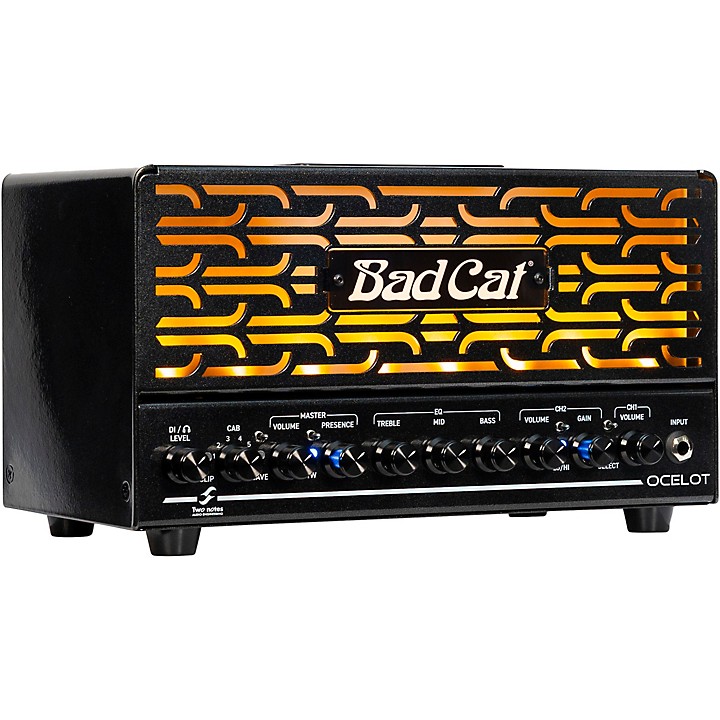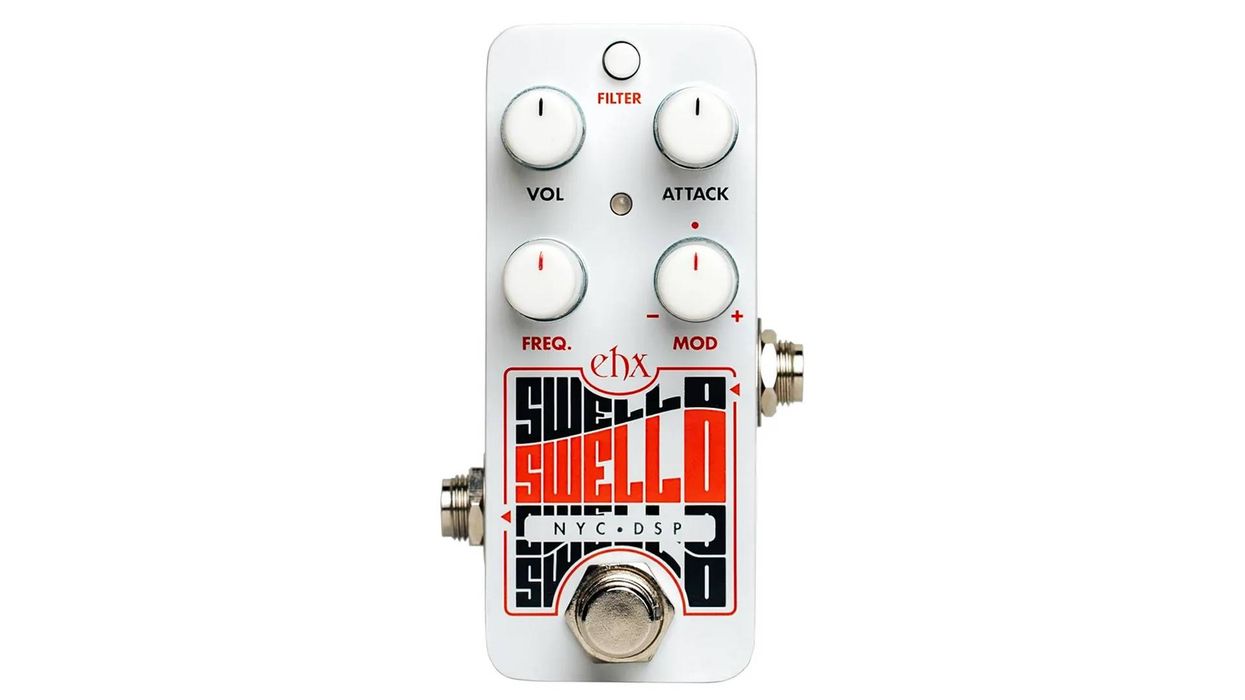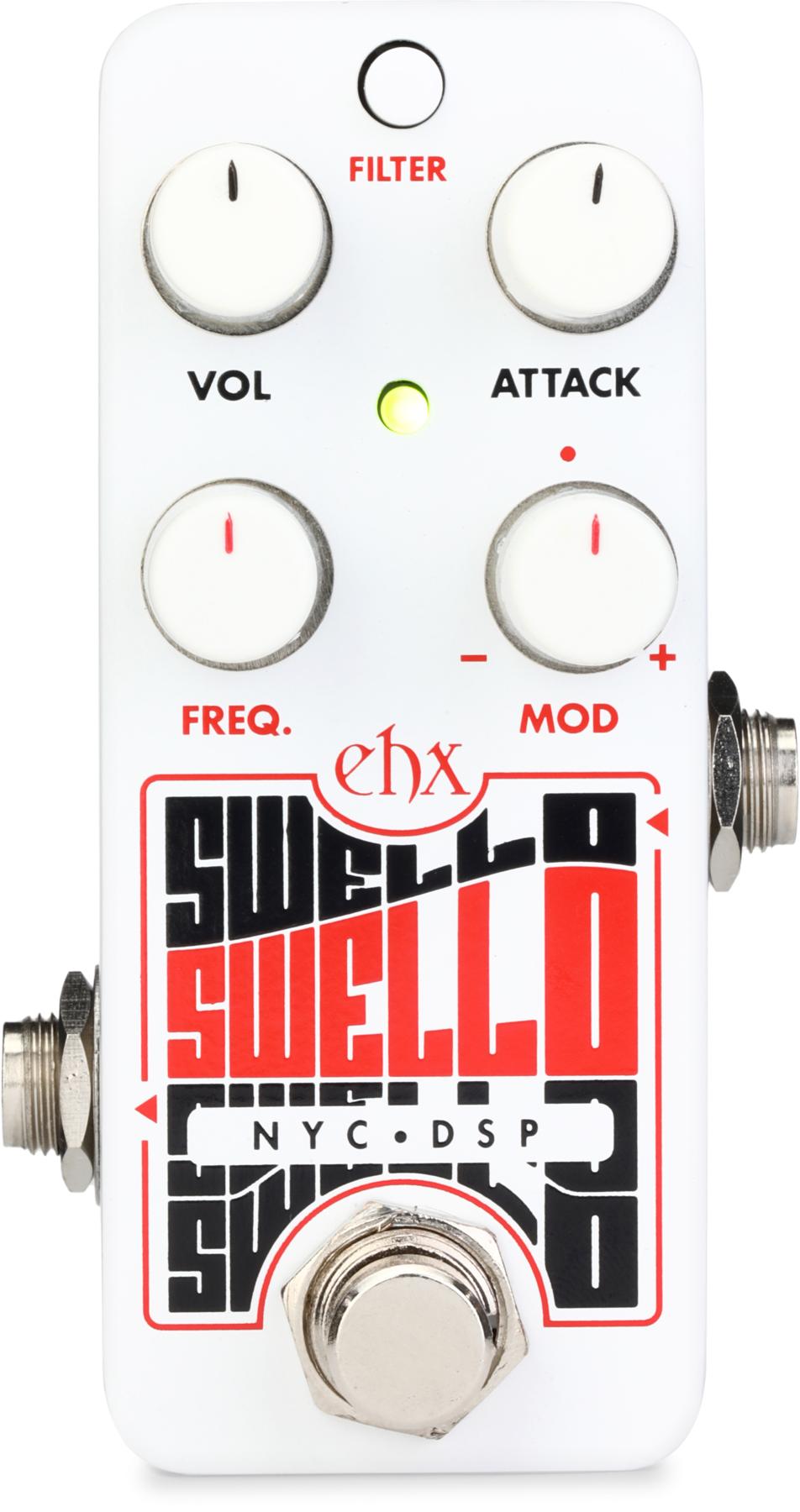Though it sounded mean and magnificent, the original Jordan Boss Tone enjoys little of the mystique that distinguishes its more famous ’60s fuzz contemporaries. Its awkward, ill-conceived enclosure—a small box that you plugged directly into a guitar—ensured that players looked to more practical alternatives. Had it come in a pedal as handsome and sturdy as JHS’s homage to the Boss Tone, the Plugin, fuzz history might have been very different.
The JHS Plugin offers two takes on the original Boss Tone’s voice. One is more vintage correct. The other, which is activated by a small push button on the side, uses a hard-clipping stage to achieve a louder, more robust, mid-forward version of the traditional tone. Both voices are distinctive. And, in general, the Plugin sneers with bad attitude. It’s snarly, delightfully acerbic, and loud. It’s also compressed in an almost contemporary sort of way, which enhances sustain and helps chord fundamentals and overtones remain intact and safe from crumbling into fractured fuzz muck. Compared to a silicon Fuzz Face, it is more compressed, buzzier, and nastier. But it dishes less sizzling top end than a silicon Fuzzrite. For many ’60s fuzz freaks, that middle path will be ideal. And in the loud, boisterous, and mid-boosted modern mode, the Plugin takes on a proto-metal rudeness that bridges the raw reediness of mid-’60s fuzzes and Black Sabbath mass.

